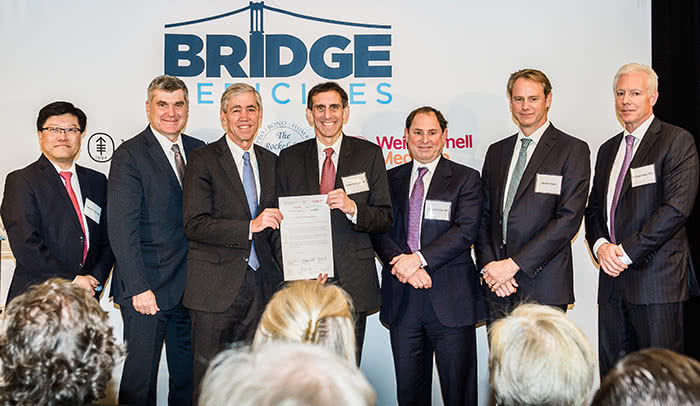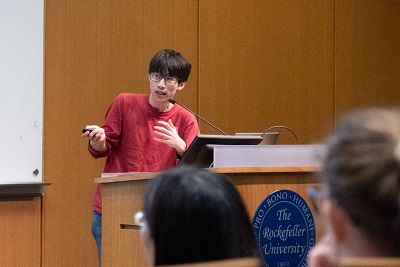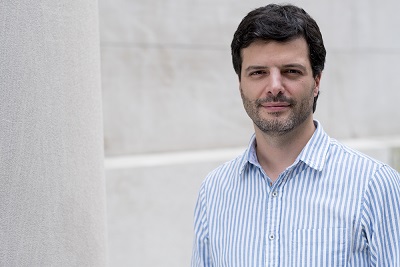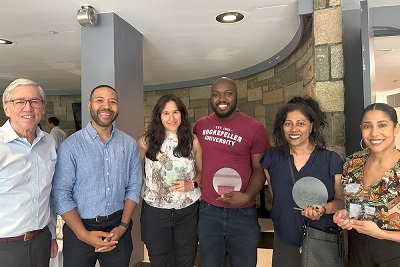Pioneering drug discovery company Bridge Medicines launched to advance promising early technologies in major academic institutions through human proof of concept

From left to right: Augustine Choi, Craig Thompson, Richard Lifton, Andrew Plump, Carl Goldfischer, James Flynn, and Michael Foley join to launch Bridge Medicines. (Photo by Studio Brooke)
The Tri-Institutional Therapeutics Discovery Institute, a partnership between Memorial Sloan Kettering Cancer Center, The Rockefeller University, Weill Cornell Medicine and Takeda, joins with Deerfield Management and Bay City Capital to create an accelerated path to innovative therapies to treat disease.
Rockefeller University, along with Memorial Sloan Kettering Cancer Center and Weill Cornell Medicine, announced today that they have established a new drug discovery company called Bridge Medicines. Launched in partnership with Takeda Pharmaceutical Company Ltd. and healthcare investment firms Bay City Capital and Deerfield Management, Bridge Medicines is a groundbreaking initiative that completes a seamless, fully funded and professionally staffed path from concept to drug candidate to efficiently and rapidly develop innovative therapeutics for treating human diseases.
Bridge Medicines builds upon the work of the independent, non-profit Tri-Institutional Therapeutics Discovery Institute, known as Tri-I TDI. Scientists at the Tri-I TDI, which launched in 2013, are working in the laboratory on approximately 50 early-stage drug discovery projects — spanning therapeutic areas including infectious disease, oncology, neuropsychiatry and rare diseases — with the hope that they might be translated into future treatments for patients.
Research projects accepted into the Tri-I TDI will now be able to graduate to Bridge Medicines, where they will be given financial, operational and managerial support to move seamlessly from a validating, proof-of-concept study to an in-human clinical trial. Typically, investigators behind promising early-stage discoveries must search for a biopharmaceutical company to purchase or license their intellectual property, or find a funding opportunity to support additional research. This process can be time consuming and may shift investigators’ focus away from science, slowing down and in some cases ending the development path.
“This unique academic-industry partnership advances the remarkable work of the Tri-I TDI, further extending the ability of basic scientists such as those at our three institutions to explore the full potential of their discoveries for the benefit of patients,” said Dr. Richard P. Lifton, president of The Rockefeller University. “We are thrilled to be a part of this initiative.”
Because Bridge Medicines projects are funded as a group, even some riskier – but potentially transformational – ideas can obtain financial support. The arrangement could shave a decade off of the typical process to go from a promising discovery to medical use.
Read the full press release here.


